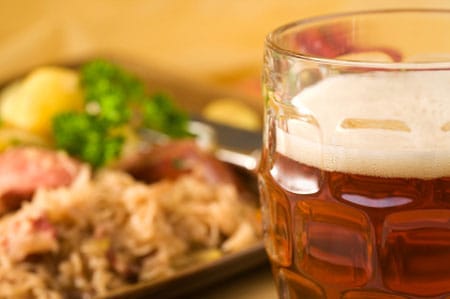Restaurateurs dish out ethnic fare with a side of personal, local history-if you ask for it.
Fredericton is hot in mid-summer. As a participant in New Brunswick's 25th Highland Games last July, I can vouch for the city's hospitality, heat and humidity. Although I am a non-Scottish Nova Scotian, I was made to feel right at home. The venue was attractive. The organization was splendid. The accommodation was all one could ask for: cosy room, good beds, stupendous breakfast and a comfortable deck on which to lounge. Everything that human planning and efficiency could do was done, and done well. This sort of thing leads a visitor to determine, then and there, that he will make this a future port of call.

If only the inland river valley didn't get so hot and sticky. When my wife and I were about to become extinct from a surfeit of both, we discovered Caribbean Flavas. As its name implies, this establishment specializes in West Indian food. We both arrived with splitting heat headaches. Mine was so bad that, had someone asked me a genealogical question, I would have mumbled, "Não falo inglês," and hoped they'd desist.
The restaurant turned out to be a family affair, operated by Naz Ali, his parents and sisters. This Trinidadian grew up in Tantallon, NS, and attended university in Fredericton. Not one person in the family is a physician, yet they have unwittingly perfected a surefire cure for even the worst atmospheric headache. The secret is to ply the genealogist with a pineapple and coconut smoothie, nice and cold. When the chill works its way into the patient's system, you put before him a dish of extra hot (in both senses), tasty food. Once the diner has used a fistful of tissues to wipe streaming eyes and nose, the pièce de résistance: a huge dessert of homemade coconut ice cream.
We went on to explore my wife's heritage in Quebec. Driving home, we reached Woodstock, NB, and decided that was enough motoring for one day. We discovered John Gyles Motor Inn and Heino's Restaurant, specializing in German cuisine. Have I mentioned I am partly of Lunenburg heritage, with a preference for south German food? My wife declared Heino's french fries the best she's eaten. Almost everything was homemade and delicious. Man does not live by genealogy alone, not when a Wurstplatte-sausage platter-comes to the table. Prosit!
Even a motor inn can have a genealogy. Who was this John Gyles for whom it was named? He was a nine-year-old boy taken from Maine during a Maliseet raid in 1689 and carried to the vicinity of the modern inn at the confluence of the Meductic and St. John rivers. Gyles was one of the first English-speaking residents of New Brunswick. O-ski-tchin, a Maliseet, taught Gyles the Maliseet way to hunt and make canoes. He protected the boy and enabled him to survive cruelty and severe privations of native life. The lad was bright and soon learned the Maliseet, Mi'kmaq and French languages. After his release, Gyles's knowledge of several languages and native ways made him a highly valued interpreter.
Twice married, Gyles lived into old age and died in 1755 at Roxbury, Massachusetts. He had several reunions with O-ski-tchin in later years at Fort George at Pejepscot, present-day Brunswick, Maine. He had long cherished the dream of returning to visit the Maliseet on the Meductic, whom he regarded as "my people," but never did. This redoubtable man felt that at age 74, he could serve in a war as well as "any of the inept young wretches they use as interpreters."
The moral of this tale is that a genealogical tourist may find more than a first-rate meal at a restaurant that serves excellent German food. The secret is to meet the people in the hospitality trade who are gracious and only too happy to share a story or assist a wayfarer. Atlantic Canadians can do that very well. Not every restaurant features a New England boy who lived among the Maliseet or a Trinidadian who became a Nova Scotian living in New Brunswick, but how do we know unless we try to find out?
Dr. Terrence M. Punch is the resident genealogist on CBC Radio and editor of Genealogist's Handbook for Atlantic Canada Research.
